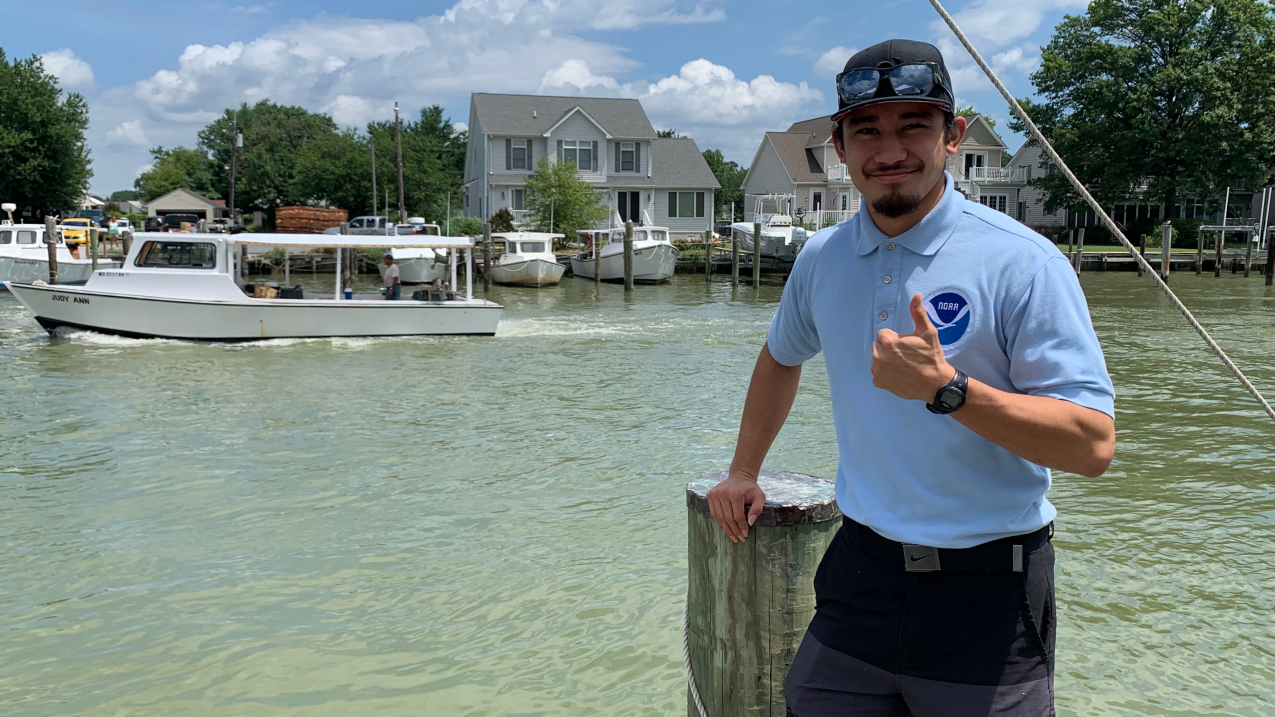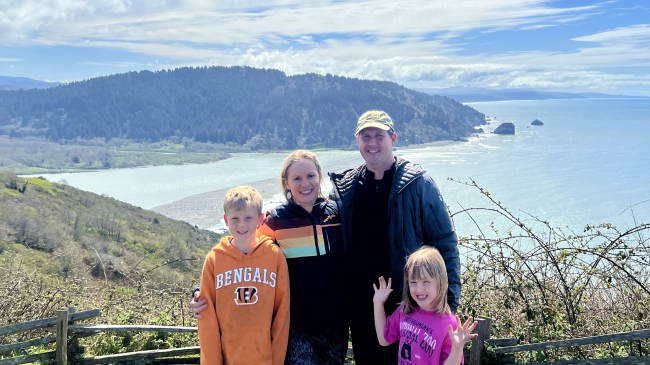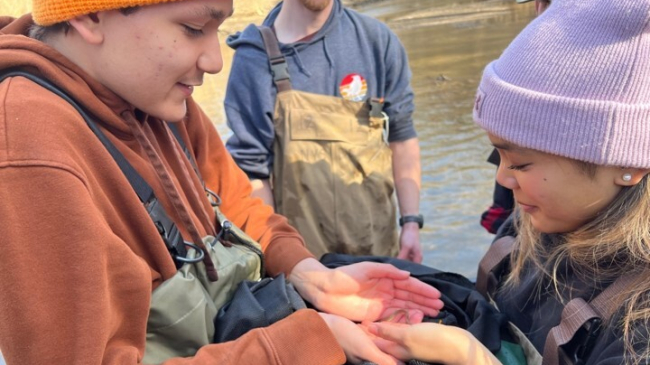When Sheldon Rosa started his first summer internship as a José E. Serrano Educational Partnership Program with Minority Serving Institutions (EPP/MSI) undergraduate scholar in 2019, he saw more than an opportunity to gain hands-on experience and contribute to NOAA research — he also saw a chance to give back to his home state of Hawai'i.

EPP/MSI scholar Sheldon Rosa standing at the dock of Phillips Wharf Environmental Center in Maryland in 2019, where he piloted the educational toolkit with 4th - 9th grade summer camp students. (Image credit: Sheldon Rosa)
During his internship, Sheldon helped develop an educational toolkit for his host office, the NOAA Ocean Acidification Program in Silver Spring, Maryland. The educational toolkit provides fifth to eighth grade teachers with curricula and materials on ocean acidification. He collaborated with the Hawaiian Islands Humpback Whale National Marine Sanctuary and the University of Hawaiʻi at Mānoa Oceanography Department. This collaboration allowed Sheldon to integrate traditional Hawaiian knowledge with NOAA’s approach to science in the toolkit.
“With guidance and teachings of my collaborators and my host office, I was able to incorporate and integrate the knowledge of ocean acidification with some Hawaiian perspective, values, and beliefs” said Sheldon. “Hawaiian culture is really connected to the ʻāina (land) and how to support the community as a whole. By developing this toolkit, I get to educate and spread awareness to the youth about how we can begin thinking in a more holistic sense about how to protect our resources like our kūpuna (ancestors) did.”
To incorporate Hawaiian culture into the toolkit, Sheldon first had to learn how to develop an educational curriculum. With the guidance of his co-mentor Jennifer Mintz, he found that just knowing the scientific content was not enough; educators have to reach students who have different levels of background knowledge and learning styles.
“I learned a lot about effective ways to communicate to our audiences and how our choice of words, activities, metaphors, and demonstrations can affect how audiences perceive and receive the information being shared,” said Sheldon.
Sheldon presented his work on the toolkit at the 2020 American Association for the Advancement of Science, where he was recognized offsite link for his outstanding poster. He received the Social Science Undergraduate Honorable Mention. He plans to continue working on the educational toolkit by adding and integrating more Hawaiian perspectives, moʻolelo (stories), mele (songs), and ideas from other cultural practitioners. “I … also want to get help in translating this toolkit into ʻōlelo Hawaiʻi (Hawaiian), so that it can also be taught in immersion schools,” said Sheldon.
“Being able to educate and spread awareness to the youth … brings me great joy to be a part of a better moʻolelo (story) of a future that we can create together by educating and inspiring our next generational leaders,” said Sheldon.
As an EPP/MSI undergraduate scholar, Sheldon will return to NOAA for a second summer internship in 2020. He will work with NOAA's Deputy Superintendent of the Papahānaumokuākea Marine National Monument and continue to integrate traditional Hawaiian knowledge with NOAA research. Sheldon looks forward to learning more about education, leadership, and incorporating traditional and cultural practices into research.
While Sheldon brought many new perspectives — including influences from Hawaiian culture — to his project, he also gained new perspectives as well. Through interactions with NOAA leadership, scientists, educators, program administrators, and his peers, he became inspired to grow into a leader and role model himself.
Sheldon was particularly influenced by Rear Admiral Timothy Gallaudet, the Assistant Secretary of Commerce for Oceans and Atmosphere and Deputy NOAA Administrator. “He … remembered who I was even though I was just a new intern,” said Sheldon. “Although he holds a very high position in NOAA, he makes it a priority to know and applaud the accomplishments of all NOAA staff.”
The EPP/MSI program also helped Sheldon build a network. “My mentors as well as my EPP/MSI cohort … constantly inspire me to be the best me I can be for my community and are great role models and leaders that inspire me to do my best,” said Sheldon. “Mahalo nui loa e ʻoukou pākahi a pau (thank you very much to every one of you)! Ulu ka lālā i ke kumu — the branches grow because of the trunk."



